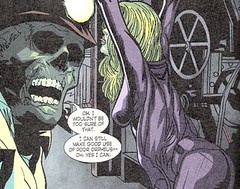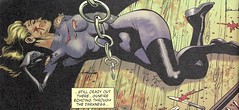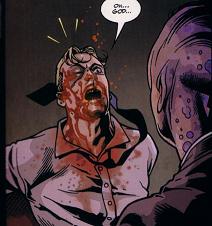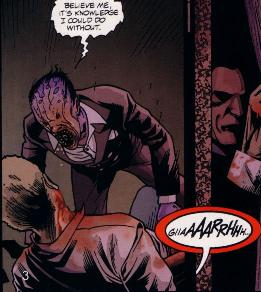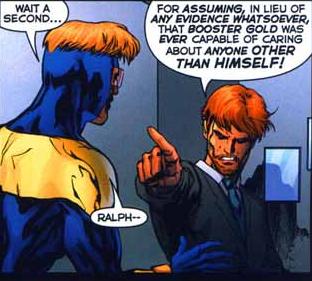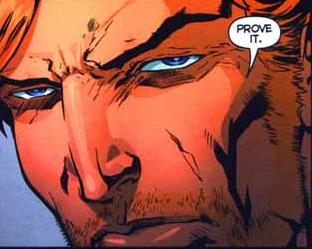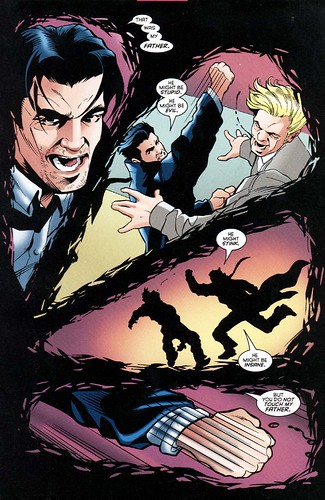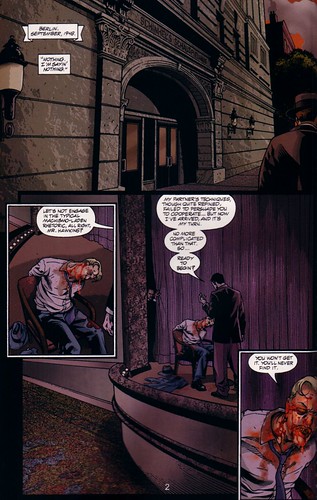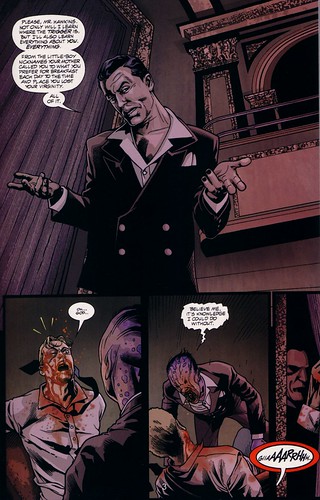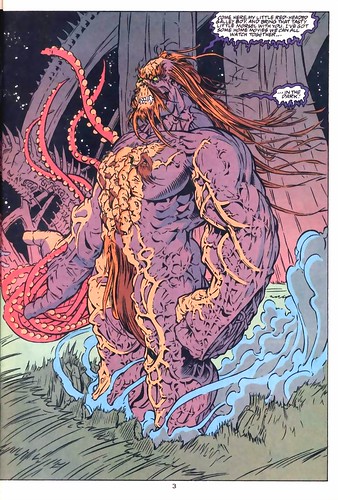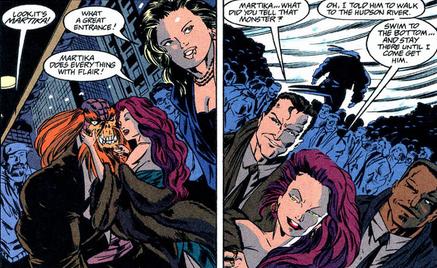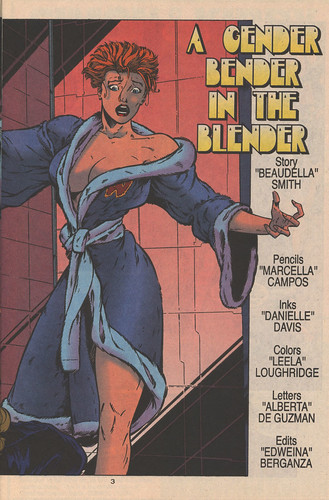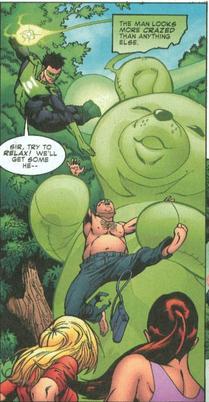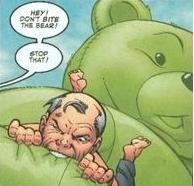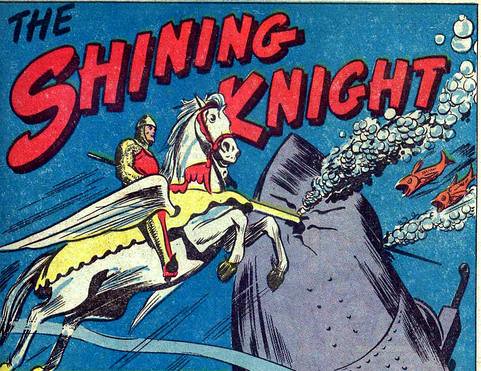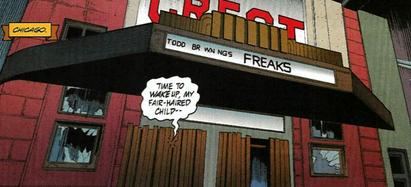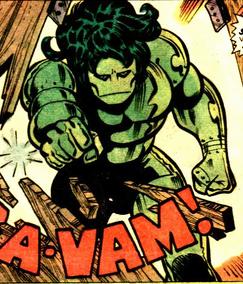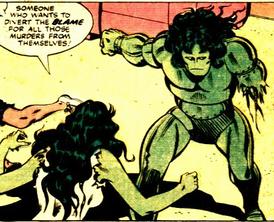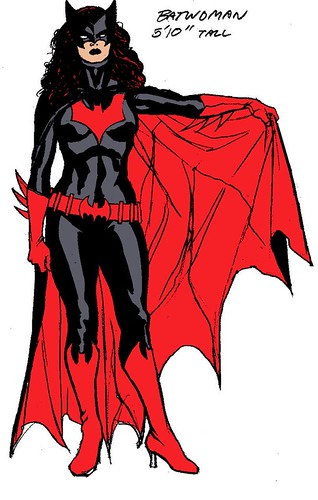I've grown up on Star Trek: The Next Generation. Literally. I have memories of being four-five years old, sitting on the couch next to my dad as that theme song played. I remember that I loved it so.
At one point I learned to play something resembling the that theme on my trumpet. (The original series one was beyond me, I'm sorry to say) It was the proudest moment I had at age ten or so.
One thing though, I was always disappointed in the treatment of women. I mean Deanna Troi? She was there to bang male aliens like Riker did the women, but with idiotic babble about romance instead. And Beverly Crusher's main purpose was to be the will-they/won't-they love interest for Captain Picard.
The women were beautiful and talented, but they never really had any role that wasn't either emotional support for a man, romance related, or related to motherhood. I waited seven years in vain for one of these two to show depth or development.
It was frustrating. Especially in the case of Deanna Troi. She was, in a way, a very similar character to Spock of the original series. A character caught between two worlds. She clearly favored her alien heritage as her dominant culture, demonstrated through mannerisms, customs, wardrobe and abilities, however she worked in human-dominated Starfleet, like her father. There should have been interesting cultural conflicts, divided loyalties and impulses, explorations of what it really was to be half one and half the other.
But she didn't get that. *Worf* got all the culture conflict aspects, *Data* got all the exploring humanity plots. And in one sense I'm happy for that. Worf and Data were vastly more interesting characters and deserved more exposure. But another part of me wonders if Deanna had gotten more stories like this, she would have been interesting too.
Certainly Gargoyles showed that Sirtis has the acting chops to keep up with the other two. (Even more surprisingly, it showed Frakes did as well.)
Beverly Crusher didn't even have that. She had unresolved romantic tension with Picard, long-suffering mother plots with her son, and was played by an actress who, while beautiful, had an emotional range consisting of passive, wooden, bland, and lifeless.
I was frustrated. Guinan and Lwaxana were interesting, but largely one-dimensional serene bartender or comic relief with maybe *one* episode of genuine development a piece. Ro or Tasha fit the Angry Young Woman, but really never got to be anything beside that.
Now I should tell you that having been very young when the series began, so I'm not 100% sure about whether I'd actually seen many of the second season episodes before and forgotten or if I'd somehow managed to miss it entirely. Regardless, when I saw the second season in reruns as a eight or nine year old, I was shocked and aghast.
They'd replaced Beverly Crusher! Sure she was pretty useless, especially as I'd just seen that godawful episode with the candle (blechh!) but she was ours!
I hated Doctor Pulaski at first. She was cranky. She was mean. She had messy hair and was old. She didn't like Data.
But something weird happened as I watched more episodes, especially as I was watching the newer episodes with Crusher near-simultaneously. The things I initially hadn't liked about Pulaski were starting to become really interesting.
After so many episodes of Gates McFadden's sighing, soft-voiced woodenness, the crankiness and irascibility were starting to grow on me. Muldaur was the better actress. Pulaski the wittier character. She didn't take anything lying down, but pushed forward just like the male characters. When something was annoying, she made sure that was known. She was like Dr. McCoy (the one without the fur, thanks), except with Boobs. And as I was a fan of both this series and the original, I didn't see this as a bad thing.
When the script called on Crusher to be angry, she showed it with soft sighs and softly nagging petulance. When the script called on Pulaski to be angry, her voice climbed, her stance grew aggressive. You took her seriously damnit.
She was "old" (though around the same age as Picard, really, but that probably says something about the ideas I was absorbing from media about women and age) and messy haired, but that was a nice change. I'd started to be frustrated by how often Troi or Crusher would be seen in pointless little scenes, brushing their hair, putting on jewelry, doing yoga/exercises. We never saw the guys doing that (though the barber was a plot point, that was for one episode, not repeatedly through many). Pulaski though? When we saw her, it was in the Sick Bay. It was on away missions. Once or twice, socializing with the guys on the holodeck. But most often it was her doing her damn job. So what if her hair was messy? She had better things to do.
And as for age? Well, for one thing it cut back on love interest status. She was much older than any of the main male cast except for Picard and thankfully, they weren't really inclined to rehash that (besides, he had younger fare). She did have the occasional vaguely romantic subplot, but they weren't terribly big deals and didn't interfere nearly so much with the main plot. Her past relationship with Will Riker's father served to demonstrate subtly that there was another side to Kate Pulaski as well as Kyle Riker but never resulted in idiotic "girl talk" during yoga class or over ice-cream. Theirs had been a past fling remembered fondly and treated maturely. And her chemistry with the holodeck's Moriarty was more subtly done than any of the younger women's plots. The chemistry was more intellectual than physical, it was believable and intriguing. And Pulaski kept a decent handle on her perspective through the whole thing.
And well, the thing with Data turned out to actually be the biggest draw of all. I suddenly realized that I was watching an ongoing subplot in which a *woman* was overcoming her prejudices and preconceptions. The "racist learning to move past his racism and respond to the individual" plot is traditionally a plot for a male character. When women are involved in these sorts of plots, it's almost never as the agent. The woman is passive, the victim of the prejudice or a bystander futilely criticizing the racist. The agent of the story, the active character is the racist. He pushes the action forward and its his growth that's the focus. In this, though, Pulaski was the agent.
Even if the Pulaski-Data thing was subtle, a side thing rather than a main plot, it was still a sign that this was not a character to be relegated to "women's stories".
I was fascinated. And very sad, because pretty soon the season was over and we were back with Crusher and her son and her tension with Picard and that was that.
Fortunately this wasn't the end. There would be Kira Nerys. There would be Jadzia Dax. There would be Kathryn Janeway. There would be Susan Ivanova. There would be Lili Marquette. There would be Beka Valentine. There would be Sam Carter. There would be Kara Thrace.
But before them, there was Kate Pulaski. And she was great.
